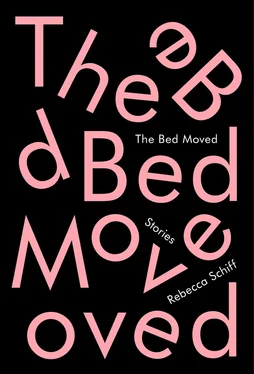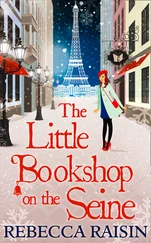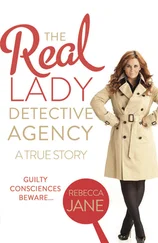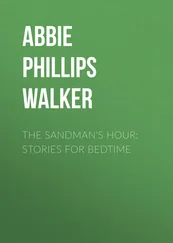WHEN MY FRIEND’S FIANCÉ founded “Men Against Violence,” a lesbian at our college didn’t like it. A room full of men talking. What were they talking about? There was no way for us to know. I said they talked about porn. I said they were scared about violence in porn. This was college, when we were all more scared about violence in porn. But porn won.
The lesbian attended the men’s meeting and screamed at them. She was the kind of lesbian who could shame a room full of men into disbanding their club according to the same principles upon which it was founded. Then the lesbian dated another friend of mine, a bisexual, and was violent toward her. It shed new light on the lesbian’s fury. After college, my bisexual friend dated men again, only men, men who wouldn’t hurt anyone, men who would have been against violence if they had gone to our college. Nobody was good-looking. Maybe being bad-looking made them want to be violent, and that’s why they had formed a club not to be. This explanation still made sense when I attended the wedding of my friend and the man who had founded “Men Against Violence.”
—
AT THE WEDDING, I made a toast. It was a job assigned to me because I was “good with words.” I wondered if I would have to let my friend minister my wedding because she was good with God. My toast was not very good. I did not mention the club my friend’s new husband had formed and disbanded in college, though the club was all I wanted to say about him. I said my friend was marrying someone with a cool beard.
I had seen cooler beards. I had seen cooler beards at this wedding, but most of the men with beards had girlfriends, assigned to sit next to them in case the water glasses got mixed up.
When had my friend made so many new friends? Were they all ministers? I met Methodists, Episcopalians, Unitarians. The girls were pretty and seemed concerned about race relations. The men were quieter, chewing behind their beards, like they had always been heading in the direction of wearing a tie at this table. Couples danced whether or not they were going to make it through the year. They were going to make it through the night, was the message, so back off. They didn’t know that I had backed off years ago, when all this was still for the taking.
“Dr. King espoused nonviolent resistance,” said a Presbyterian in a tube dress.
“He wouldn’t have been violent anyway,” I sort of whispered.
The bride and groom sat by themselves at a two-person desk, which I later learned was called the “Sweethearts’ Table.” They were in charge of what we valued tonight — ethical shrimp, token gay ministers, gift packets of seeds, nonviolent porn. They thanked the wedding guests for taking planes from all over the world to form this community. They handed a mic back and forth, and seemed moved.
Somehow, the two of them moved back to the town where we had gone to college. They must have liked it there. My friend became a minister to the students at the college, but it’s not called a minister when it’s students. It’s called a chaplain. Violence might mean something other than violence, too, at this college. I always thought violence meant a punch in the face, a knife to the throat, but the students at this college meant whenever you felt violated. That could be anytime.
—
RIGHT NOW I am violating my friend and her husband by telling their story. I am violating the college and all its clubs. Someone could point out that a girl at the college was once a victim of actual murder. There is a tree with her name at the base, on a plaque. The tree blocks the view from a hill where we used to sit. The tree violates the view. I didn’t know the girl, or miss her, because she went to the college after we went, after my friend’s husband’s club was formed and disbanded, but before my friend and her husband moved back. I didn’t know the guy who killed her, but I know violence has to mean what it says, and it shuts everybody up when it says it.
ON THE BUS, I was jealous. I was jealous of the girl in front of me, jealous of the girl diagonal. I was jealous of the elderly Chinese woman sleeping by the window. It was the Chinatown Bus. The bus was taking me to see a guy who had come to see me twice, a guy who held doors, a guy who told me I was cute like he was trying to ward something off. He would find all of these girls cute. Any of us could step off the bus and be his girlfriend.
By the time I got off the bus, I was done with him. He was there anyway, waiting to take my bag. The problem was that it was his birthday. I had a box of Italian cookies and a card I had written on the bus.
“You are special,” I had written. It was the only thing I could think of that wasn’t a lie. Everyone was special. “I hope you like cookies…,” I had added. That was a lie. I knew he liked cookies. The cookies were in one of those white boxes that make baked goods seem promising.
“Some may have broken,” I said. “They’ll still be good.”
“I can’t wait,” he said. He really liked cookies. He had told me many times, but what else did I know about him? He cared about real estate. His mother was dead. So was my dad. Cookies and real estate. I did not care. This was my first boyfriend since the last one.
Does it matter that we were in Boston? We had to stay at his dad’s house in Newton, since my unwanted boyfriend wouldn’t rent an apartment. He only wanted to own. I wanted to meet the dad, but we got in too late. We put the white box on the white countertop, an island bisecting the kitchen, just like in my mother’s house. His dad had the same cheeses in the refrigerator, the same jams. The house had the same quiet.
“Welcome Lilah!”
On a bright square of printer paper, the dad had left me a note, a note that maybe needed a comma.
“I made a reservation for tomorrow,” said the son.
“For all of us?” He’d mentioned father, sister, maybe grandpa.
“No, just us.”
I didn’t know his father, his sister, or his grandpa, but there had been a chance they’d be people I’d like to know. I wanted to watch him with people he didn’t find cute. Maybe I could blend into those people. Though maybe he found his sister cute — not unfeasible.
“I’m going to have one.” He opened the white box, and held up the kind with a fruit center, the dark womb of cookie.
“I wanted to meet your sister.”
“You will.”
I wouldn’t. After the birthday ended, I was getting on a bus going the other way. Still, I liked the idea of the sister. She was a singer, a guitar cradler. She wrote funny songs about tingly soap. She had a nickname. She was a lesbian. They made up songs together and missed their mom together and posed together on their dad’s refrigerator.
My name was hard to nick. Lie, I guess. Or Ah. This is my girlfriend, Ah. She’s sighing with pleasure. She’s having an orgasm. That’s not a problem for Ah. That’s not our problem. Our problem is death. The night her father died, Ah tore the dad and husband cartoons off the refrigerator, because she didn’t want to make fun of a family member who was no longer in the family. She tore down the couples in bed, hating each other. They didn’t look like her parents anyway.
“No, Bean, dinner’s going to be just the two of us,” he said on the landline with his sister, slinking cordless past his own fridge cartoons. He tiptoed to get something from the pantry, and I watched his pants, dark gray with a little stretch in them. He shook a box of cereal. I saw that he wasn’t a boy, my boyfriend, but a small, clean man. He had come straight from work. Work was law. Real estate was his area. He had a client dying of AIDS who was suing his sister over a house they’d both inherited. I liked him best when he talked about the case.
Читать дальше












